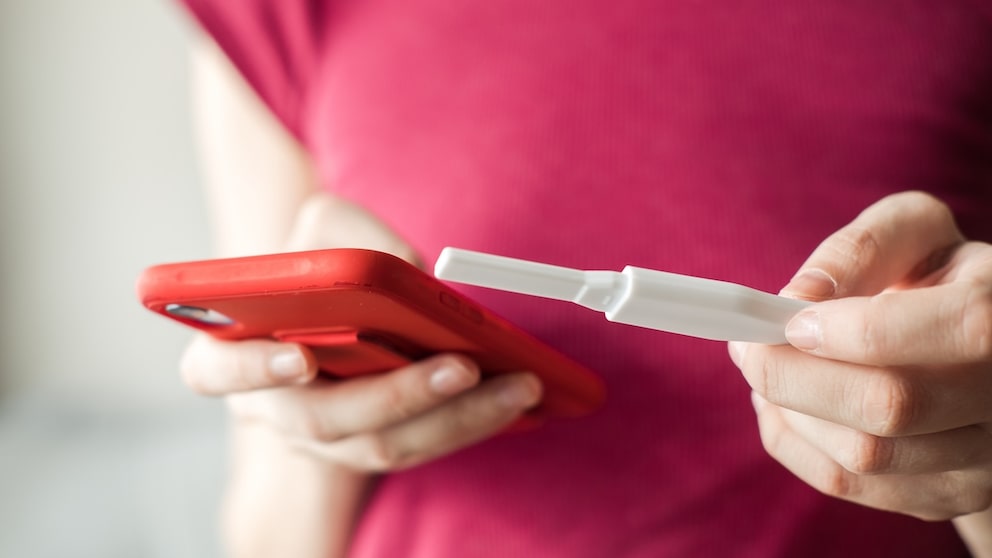November 25, 2024, 2:41 pm | Read time: 3 minutes
Fertility and the right time to get pregnant are topics that concern many women. Whether you want to determine your fertile days or improve your fertility – STYLEBOOK spoke to gynecologist and reproductive medicine specialist Dr. Heidi Gößlinghoff.
Let’s start from the beginning: when is the “best” time to get pregnant? This is actually between the ages of 20 and 25. At this age, the egg cells have the fewest genetic defects, and the pregnancy rate is the highest. But even later, there are ways to optimize the chances. Dr. Gößlinghoff explains: “The most fertile days are one to three days before ovulation. During this period, sperm have the best chance of reaching the egg and fertilizing it.” But how do we best calculate our fertility?
Overview
Recognizing ovulation – temperature curve and other signs
There are various methods to determine ovulation and, thus, the fertile days. One of the most reliable is the temperature method.
How to chart your temperature
Measure your basal body temperature at the same time each day. “The temperature is lower in the first half of the cycle. Shortly before ovulation, it drops slightly and then rises by about half a degree, remaining at a high level until your period,” says Dr. Gößlinghoff. The rise marks ovulation.
Other signs
The presence of clear, thin cervical mucus and heightened sexual desire are also indicators of ovulation. Tip: For added certainty, consider using ovulation tests that detect the surge in luteinizing hormone (LH).
Influence of age and lifestyle on fertility
Fertility decreases with age. “From the age of 35, the pregnancy rate drops significantly, and even drastically from the age of 40,” explains the expert. But lifestyle also plays a role:
- Negative influences: Smoking, stress, lack of sleep, and lack of exercise can reduce fertility.
- Positive influences: A balanced diet with fresh, plant-based foods supports the body.
When health insurance helps
Whether the costs of examinations are covered by health insurance depends on age and marital status:
- Married: For those married and over 35, diagnostic procedures begin after six months of trying; for those under 35, after one year.
- Unmarried: Unmarried couples, however, are typically responsible for covering the costs on their own.
Does hormonal contraception affect fertility?
Many women worry that taking the pill could affect their fertility in the long term. “This is not usually the case,” reassures Dr. Gößlinghoff. However, it can take some time for the cycle to normalize after stopping the pill, especially in the case of pre-existing conditions such as polycystic ovary syndrome (PCOS).
The role of sperm quality
Sperm quality is also crucial for the desire to have children. “A suboptimal spermiogram can extend the time it takes to achieve pregnancy. Men should, therefore, also eat a healthy diet and avoid harmful habits such as smoking,” advises Dr. Gößlinghoff.
Myths surrounding fertility
There are numerous myths that persist. These include the assumption that you have to put your feet up after sexual intercourse. “This is not statistically proven,” says Dr. Gößlinghoff. The idea that prolonged abstinence increases sperm quality is also not true: “Regular intercourse is more effective.”

STYLEBOOK Experts Want to Have Children Later? Gynecologist Reveals How to Stay Fertile for a Long Time

Doctor explains Female sterilization – procedure, costs, side effects

Almost every woman is affected Gynecologist explains what really helps with vaginal dryness
Conclusion: planning is the key
If you want to calculate your fertility in a targeted manner, you have good tools at hand with temperature curves, ovulation tests, and a healthy lifestyle. Always consult with your gynecologist if you have any doubts, as early clarification can resolve many concerns.

